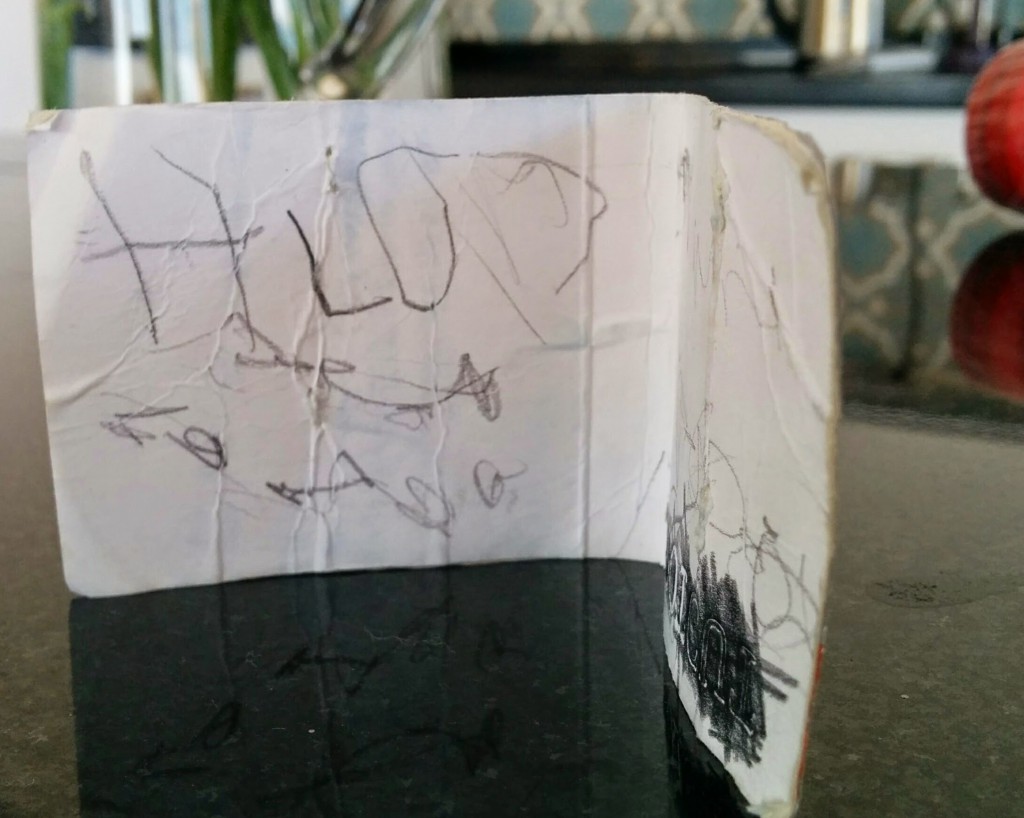This is likely the last year I’ll get to dodge the back-to-school rush. While everyone else was wrapped up in the “vuelta al cole” in September, I dawdled in the near-empty park with my two little ones, and enjoyed the peace of the library on weekdays. People are curious about why my three-year old isn’t in school, even though, like in most European countries, the mandatary age for schooling is six. Notwithstanding our disregard of popular opinion on the subject, it has been a very interesting phase in terms of learning. Some snippets from the past few months show that plenty of learning (including academic knowledge) takes place when kids are just getting on with life.
- My daughter wants to push keys on my laptop while I’m just completing an online purchase. I’d prefer not to have to start over due to some random button-pressing so I let her hold my bank card and read the numbers with me as I enter them. Next step is to click on “pagar” - pay. When I tell her this, she replies: “There are two words in Spanish for ‘pay’.” “Really?” I ask. “What’s the other one?” She replies: “La cuenta (the bill).” From which I gather that the local café culture has more benefits than just letting us sit back with a café con leche.
- She finds a scrap of card on the floor with a crease down the middle. “It’s a card to send someone,” she tells me, “Can you write it?” Rushing to get dinner ready I tell her: “You write it…you can write Hi or Hello or Dear….” running out of relevant words that she could conceivably decipher on her own. After dinner, pyjamas, stories and bed, I’m clearing the floor and come across the card again. I almost throw the scribbled-on scrap away but glimpse letters: HLO. I double-check with her what she meant to write in case the letters are random: “Hello.”
- I’m reading her Le Gruffalo (yes, in French,): “Une souris se promenait dans un grand bois profond…” (“A mouse took a stroll through the deep dark wood,” in the original text) and she interrupts to say: “But it says: ‘une sourisss’ “, pronouncing the silent ‘s’ at the end. It’s not the first time we discuss how we write X but we say Y. So we then continue reading the book (which she has learnt by heart in that way kids do) and randomly mispronouncing words the way they are written. A week later, “sur le neZZZ” (“on its nose”) still has her in giggles. In the meantime she is learning the illogical spelling of these words off by heart. “Tonight it’s pizza for dinner,” I tell her, pronouncing it pizz-ah. “And we say ‘peet-sa’”, she replies.
- She is studying a water bottle from the supermarket Carrefour. She points to the E in Carrefour, looks up and tells her dad: “On ne dit pas le ‘e’.” (We don’t say the ‘e’). Since no-one else was saying the word this means she had worked out what it said (in context obviously), pronounced it in her head, compared the spoken word with the letters, and spotted where the spelling didn’t match the usual pronunciation.
She is currently getting 2-3 hours of one-on-one Spanish play a week, as well as lots of passive exposure to Spanish. The rest is probably two thirds English (me) with the remaining third French and English at the same time (mealtimes and weekends). So far it is working, judging by what comes out of her mouth. I’ve even felt we could afford to throw in a little Arabic, so even her 14-month old brother now turns and points excitedly skywards when asked “Wayn el-’amar?” (Where’s the moon?)
Update: More on the French and Arabic translations of The Gruffalo here.
